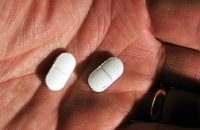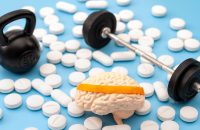Alcohol dependence is a mind-boggling and challenging condition that influences a huge number of individuals around the world. While traditional approaches to recovery often involve therapy and counseling, the role of primary care at https://coastalprimarycare.org/alcohol-treatment-clinic medication in alcohol dependence recovery is gaining recognition as an integral part of an extensive treatment plan.
Reducing Cravings and Withdrawal Symptoms: Medications endorsed in primary care settings for alcohol dependence often work by reducing cravings and alleviating withdrawal symptoms. These symptoms, which can include nervousness, insomnia, and actual distress, often go about as huge obstructions to sustained recovery. Primary care medications assist individuals with managing these difficulties, improving the probability of fruitful rehabilitation.
Targeting Brain Chemistry: Numerous primary care medications for alcohol dependence focus on the brain’s chemistry, specifically the neurotransmitters related to remuneration and delight. By modulating these neurotransmitters, medications can assist with restoring a more adjusted brain capability, reducing the habitual craving to drink alcohol.

Integrated Approach to Recovery: https://coastalprimarycare.org/alcohol-treatment-clinic is best when integrated into a thorough treatment plan that includes counseling, support gatherings, and way of life changes. The integrated approach tends to both the physical and mental parts of alcohol dependence, promoting long-haul recovery and reducing the risk of backslides.
Patient-Centered Care: Primary care medication in alcohol dependence recovery stresses a patient-centered approach. Clinical professionals work intimately with individuals to determine the most suitable medication, monitor progress, and change treatment plans on a case-by-case basis. This customized care upgrades the adequacy of the medication and supports the novel requirements of every patient.
Continued Monitoring and Support: Recovery from alcohol dependence is an ongoing cycle. Primary care medication isn’t a standalone arrangement yet, but rather a tool that requires continued monitoring and support. Standard check-ups, counseling meetings, and changes in accordance with the medication plan add to the sustained progress of the recovery venture.
The role of primary care medication in alcohol dependence recovery is multi-layered. By addressing both the physical and mental parts of the condition, these medications contribute fundamentally to the adequacy of treatment plans. As exploration and clinical understanding develop, primary care medication continues to play a vital role in providing individuals with the support they need to accomplish and maintain a lasting recovery from alcohol dependence.






































































































